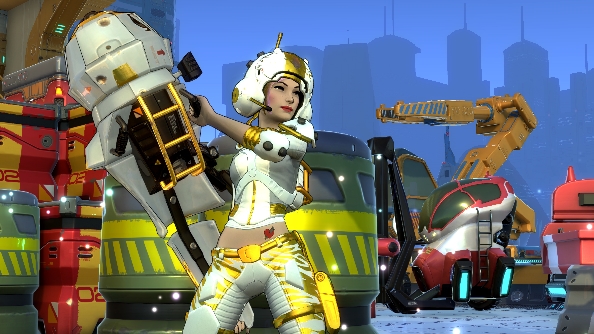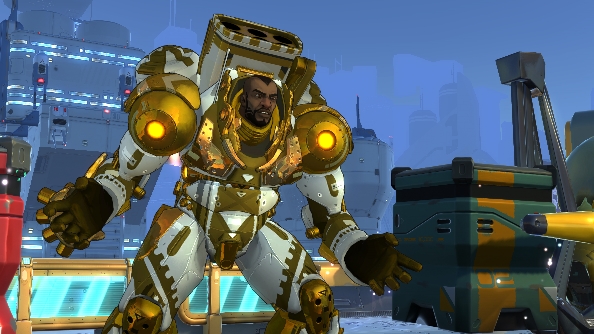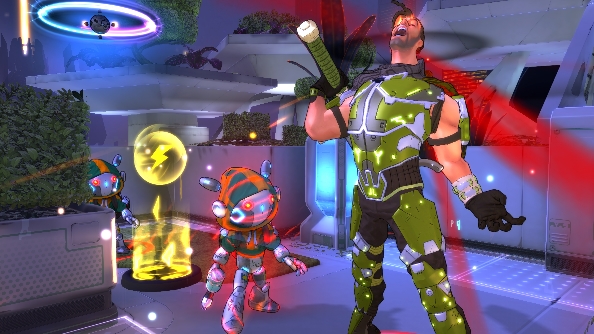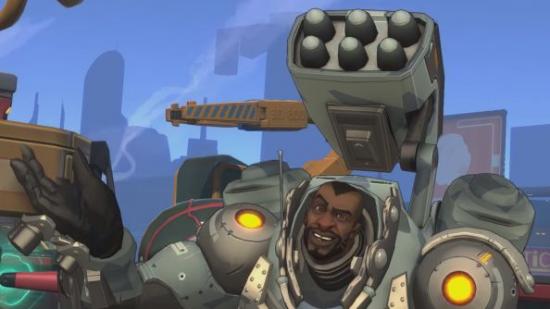Three years ago, Trion Worlds became one of the bigger names in MMOs to embrace free-to-play, Rift joining The Lord of the Rings Online and Star Wars: The Old Republic in a quiet revolution that tackled an old stigma head-on. “Our players aren’t frickin’ ATM machines,” Rift senior design director Simon Ffinch told us at the time.
How many of the best strategy games on PC have you bested?
Yet here they are making the switch again – backwards. Trion’s colourful, competitive tactics game Atlas Reactor entered alpha in free-to-play, but is now passing through the membrane in the opposite direction. It’ll sell for $29.99 / £29.99 in traditional fashion on both Steam and Trion’s own service starting next week. The question is: why?
“Truth be told, we just kind of assumed by default that since our last two games had been free-to-play that this one would be too,” laughs Trion CEO Scott Hartsman.
Only when Atlas Reactor went into testing earlier this year did the studio realise: players were hoovering up the packs bundling together characters and customisation options that would otherwise be microtransactions. And decided: “Huh, we should probably think about this.”
“It surprised us,” remembers Hartsman. “Those things just took off. People were vastly more interested in that than they were in the microtransaction side.”
Atlas Reactor has been in beta for a fortnight, and in that time, Trion have trawled Reddit, news sites and streams. They’ve seen concerns about potential grind to unlock freelancers – Atlas’ playable corporate mercenaries.
“This is something we’ve been trying to figure out for two or three weeks now,” says Hartsman. “Are we gonna do it, are we not gonna do it? Seeing those comments coming up really does reaffirm to me that we’re doing the right thing here.”
Two or three weeks is a short time in game development – but Trion have turned the ship quickly, relying on internal tech that has shipped fixed-price games in the past. The Atlas Reactor dev team are now at work rejigging freelancers to be unlocked by default, and dividing up taunts into DLC packs. Remarkably, no deep mechanical changes have been necessary.

“The game itself has been tailored around fairness completely,” explains Hartsman. “So in terms of the core game design, buy-to-play actually fits it better.”
With Rift, Trion played a part in fighting free-to-play’s reputation for “really janky games”. In a post-League world, they seem vindicated. But rather than enjoy their victory lap, embracing a role as evangelists for the form, they now believe that one business model does not fit all.
While free-to-play might suit games with slow progression systems or an element of randomness – think Hearthstone’s card packs – it’s a less comfortable fit for Atlas Reactor’s cycle of failure and mastery.
“Sometimes being outplayed can also mean being out-guessed,” says Hartsman. “Which means you didn’t necessarily do a bad thing by losing, you just didn’t do the right thing in that one situation. And so now the learning becomes part of the fun.”

When players are digging into the way those systems interplay, they don’t want to be doing a second set of calculations on top – working out which microtransactions represent best value.
“We have a portion of our audience who literally demand free-to-play games, because for them, min-maxing how they spend their time versus money is a huge part of the fun,” reveals Hartsman. “But at the same time, not every game is going to suit that type of audience.”
Beyond Hartsman’s own explanation, I wonder if turn-based tactics players are used to stumping up full price for specialist wargames and board games, and simply like the idea of paying upfront for a metaphorical box before carefully unpacking the contents.
And maybe competitive games – the sphere in which free-to-play has finally found success and acceptance on PC – actually present a unique problem. In generations past, losing players pointed the finger at alleged botters rather than accept their own mistakes. Microtransactions provide a contemporary scapegoat. It scarcely matters if the system is fair, so long as players are convinced it isn’t.

It’s territory the Atlas Reactor team are never going to have to navigate. Just like Blizzard, who cracked free-to-play with Hearthstone but have reverted to fixed-price form with Overwatch, Trion have come to realise there’s room for more than one business model on their belt – and learned to apply the right tool for the job.
“Business model isn’t religion to us – we’re a logic-driven company,” says Hartsman. “You’ve probably talked to a million people over the last couple of years who were treating free-to-play as the only answer. But now we’ve come through that and we’re on the other side.
“There are now many more viable options again, and I think that’s just a winner for everybody.”
